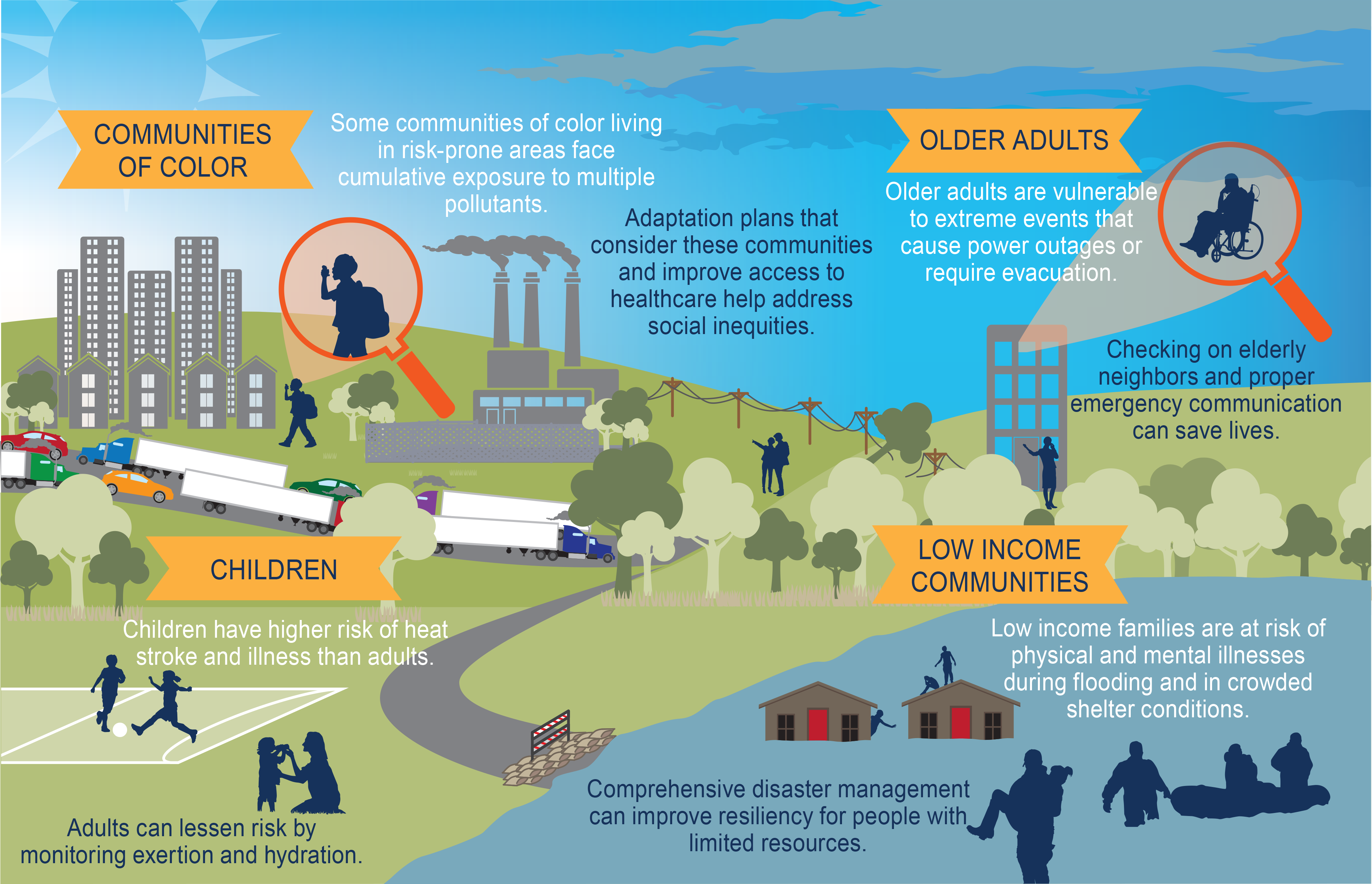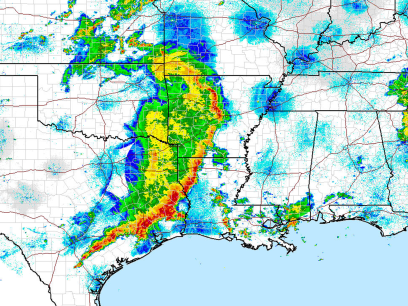
Extreme weather events such as hurricanes, floods, drought, extreme heat, and wildfires are occurring at increased rates due to a changing climate and can impact individual mental health. Following disasters such as these, increased levels of anxiety, post-traumatic stress disorder (PTSD), and depression are observed in both people with no history of mental illness and those at risk.
Mental health problems may be short-lived or long-lasting and may lead to other health consequences. High levels of anxiety and PTSD has been observed among those affected by Hurricane Katrina, and similar observations have followed floods and heat waves. In addition, some extreme weather events may require populations to migrate, which can lead to relocation and adjustment disorders.
Some groups are especially vulnerable to weather-related health impacts, including children, women, the elderly, emergency responders, and those with preexisting physical and mental health problems. For example, some groups may experience adverse health effects during heat waves, which scientists expect to become more frequent and more intense in the coming decades. Patients with mental illnesses such as depression or schizophrenia are at risk during hot weather because their medications may interfere with temperature regulation. Rates of agressive behaviors such as suicide and homicide also increase with high temperatures.
Understanding how a changing climate can impact mental health is important for minimizing adverse health impacts and equipping public health workers with the tools necessary to protect communities from negative health outcomes.
What You Can Do
- Explore the infographic below for examples of populations at higher risk of exposure to adverse climate-related health threats and adaptation measures that can help address disproportionate impacts. White text indicates the risks faced by those communities, while dark text indicates actions that can be taken to reduce those risks.

Learn More
- Explore these helpful tips from the Centers for Disease Control and Prevention (CDC) on how to best take care of yourself and others during or after an emergency or disaster.
Definitions
- Mental health refers to the ability of an individual to realize their abilities, cope with normal stresses of life, work productively and fruitfully, and contribute to their community.
- Mental illness refers to diagnosable mental disorders that are characterized by alterations in thinking, mood, or behavior associated with distress and/or impaired functioning
Sources:
- CDC. 2018. “Learn About Mental Health.” Accessed April 15, 2020. https://www.cdc.gov/mentalhealth/learn/index.htm
- CDC. 2014. “Mental Health and Stress-Related Disorders.” Accessed March 5, 2019. http://www.cdc.gov/climateandhealth/effects/mental_health_disorders.htm
- Fourth National Climate Assessment. 2018. "Chapter 14: Human Health." Accessed March 5, 2019. https://nca2018.globalchange.gov/chapter/14/
- National Climate Assessment. 2014. “Human Health: Mental Health and Stress-related Disorders.” Accessed March 5, 2019. http://nca2014.globalchange.gov/report/sectors/human-health
- Padhy, S., Sarkar, S., Panigrahi, M., & Paul, S. 2015.” Mental health effects of climate change.” Indian Journal of Occupational and Environmental Medicine, 19(1), 3–7. http://www.ncbi.nlm.nih.gov/pmc/articles/PMC4446935/
- USGCRP: Climate and Health Assessment. 2016. “Mental Health and Well-Being.” Accessed March 5, 2019. https://health2016.globalchange.gov/mental-health-and-well-being


